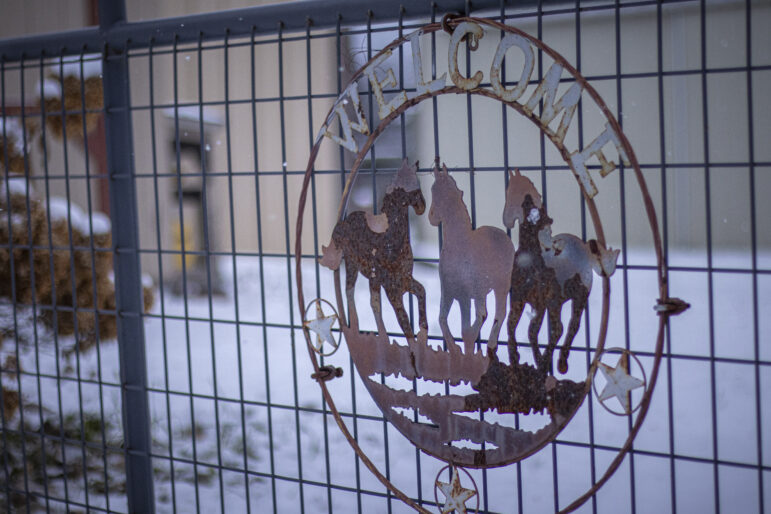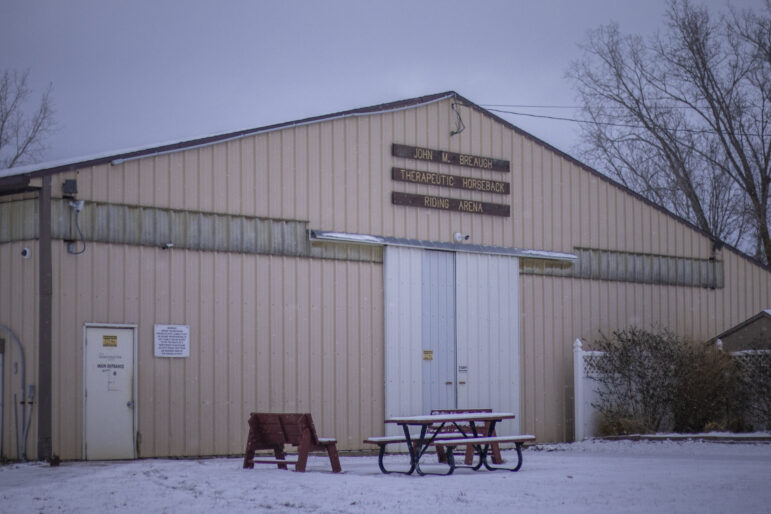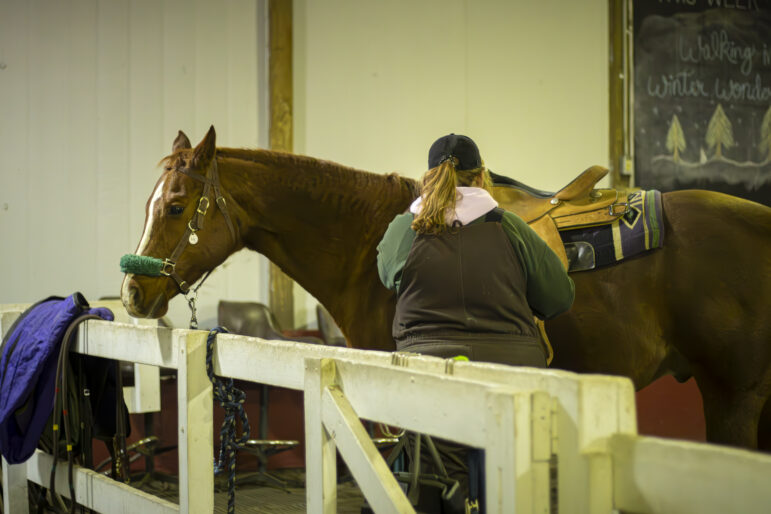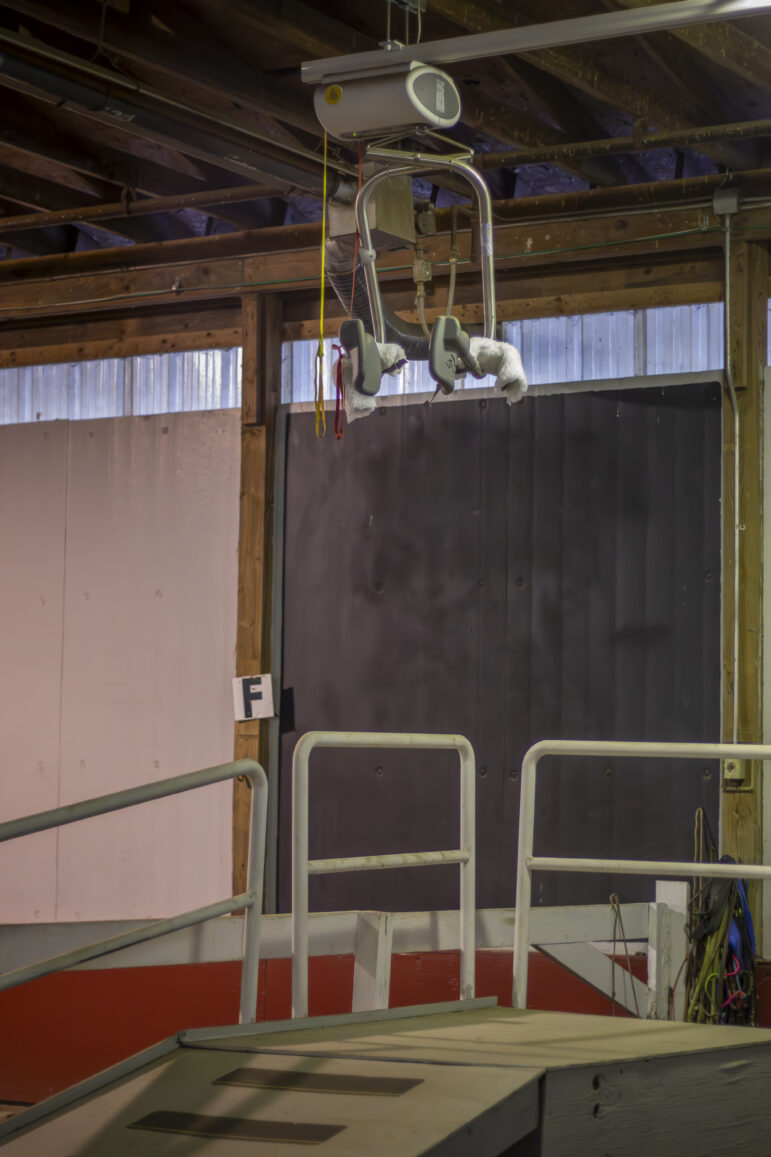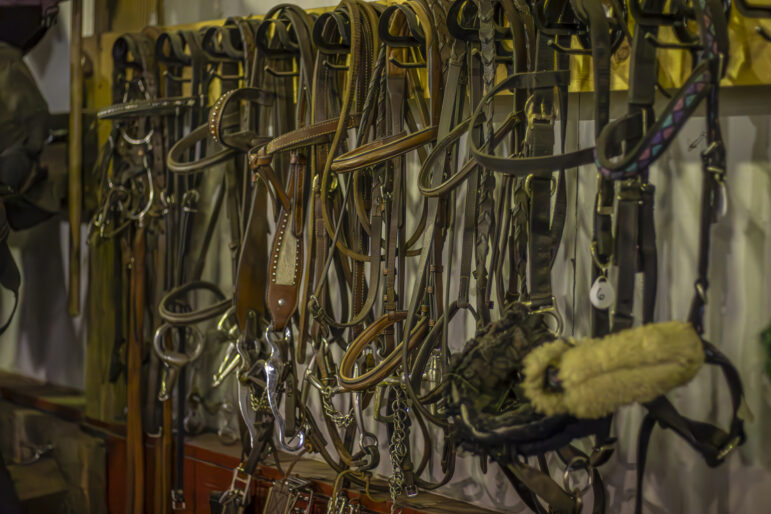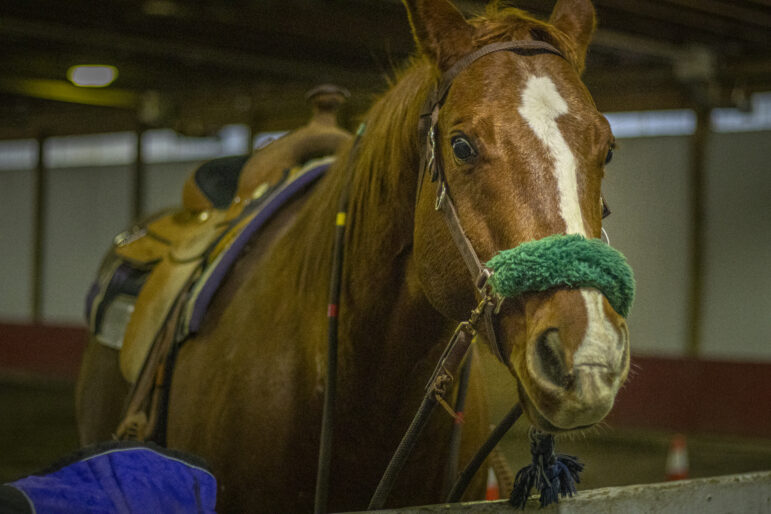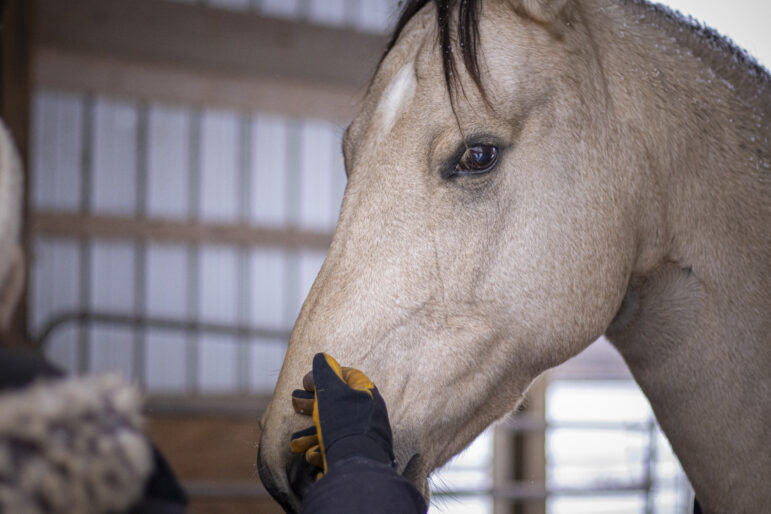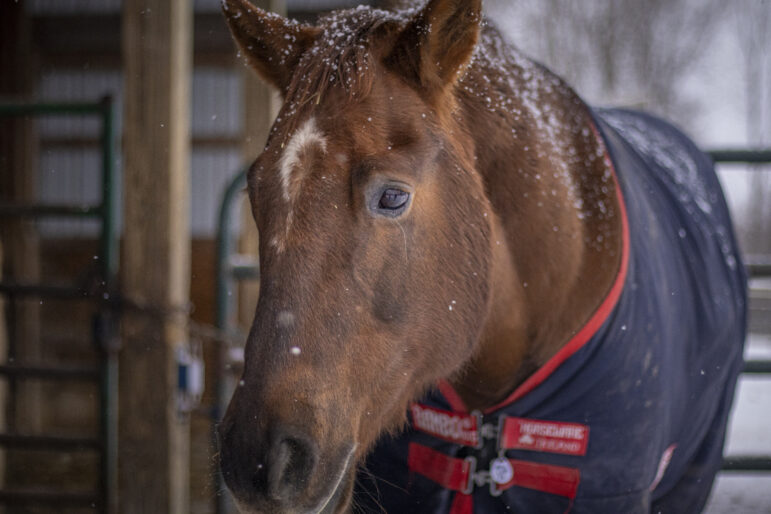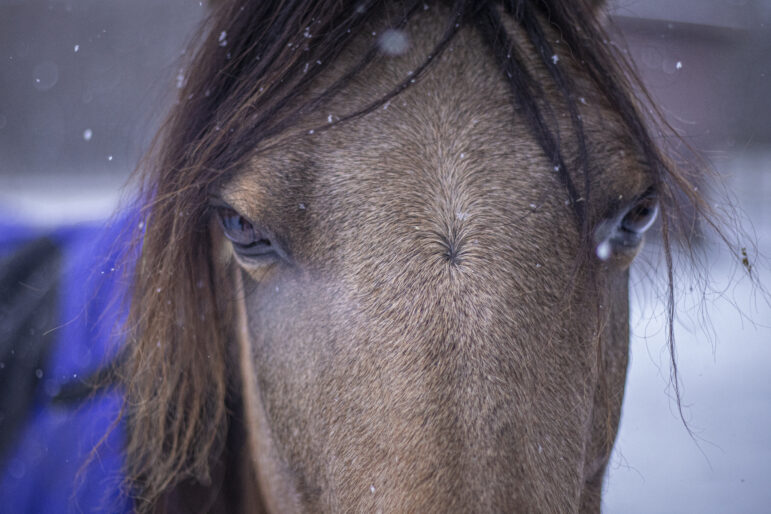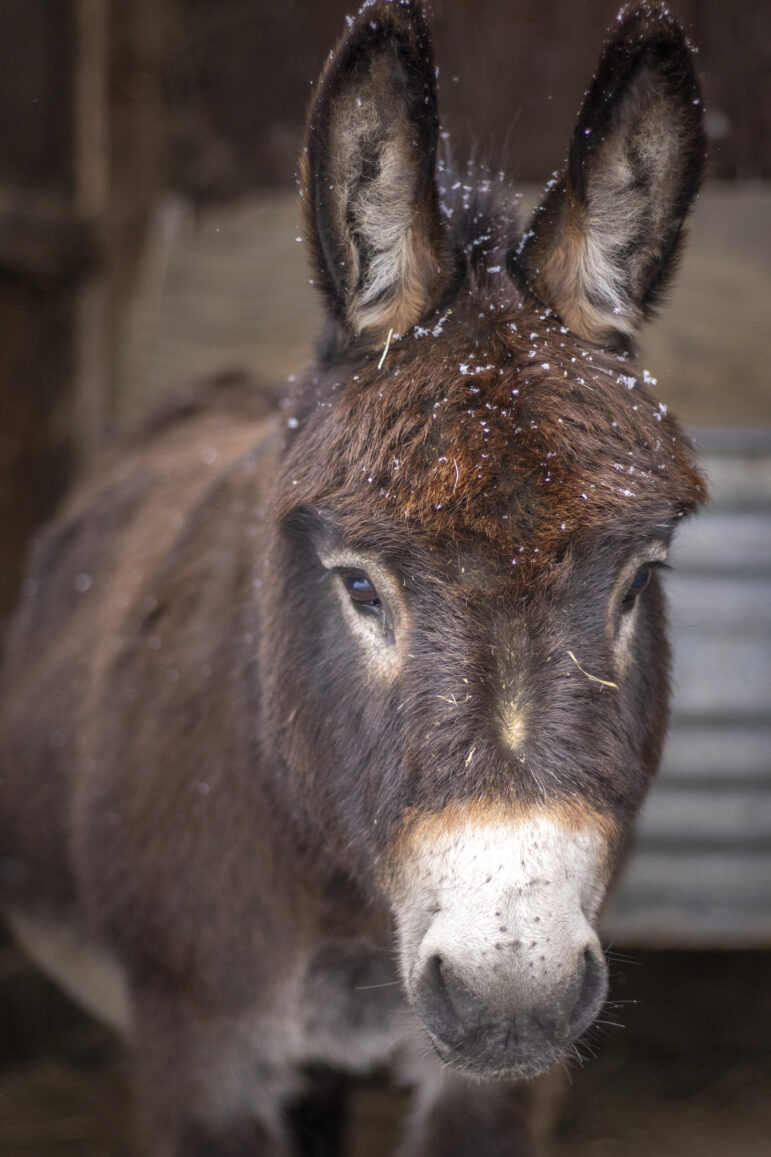ECL, originally the Beekman Therapeutic Riding Center, was founded by John Breaugh in 1979. Breaugh was the former principal of Beekman Center, the special education center next door to ECL.
The Lansing School District’s Equine Center for Learning sits at the end of Wabash Road, where the gates open to a quiet, seven-acre encampment of barns, sheds and a large indoor arena.
It’s here where program coordinators serve as equine therapists helping students and community members of all ages and abilities.
“Our general purpose is to be able to provide access to students and surrounding communities, and to help them build a connection with a horse,” said Lena Edson, ECL’s program manager.
ECL, originally the Beekman Therapeutic Riding Center, was founded by John Breaugh in 1979. Breaugh was the former principal of Beekman Center, the special education center housed next door to ECL.
ECL is an educational program dedicated to equine-assisted services, including equine-assisted learning and therapeutic riding.
“There are lots of benefits to equine-assisted learning and therapeutic riding,” Edson said. “For therapeutic riding its strength, range of motion, finding gross motor skills. Cognitively, you have problem-solving and communication. Emotionally, you have self-esteem, confidence and decreased stress.
“On the equine-assisted side of things, we focus a lot on socioemotional learning skills. So, self-awareness, self-management, relationship skills, responsible decision-making, problem-solving, critical-thinking skills—and that’s going to be more focused on academic skills as well.”
Edson cited a 2022 research project at Michigan State University initiated and run by Dr. Christine Skelly, titled Spartan Horse Project. This study observed three separate groups of students, as they each had different levels of interaction with horses. Group 1 simply walked around the parking area, Group 2 toured the farm and Group 3 interacted with the horses. Edson said the results showed a greater decrease in the anxiety and stress levels of Group 3.
“Actually, being able to touch [the horses] and be next to them is important,” Edson said.
ECL also hosts non-therapeutic riding. As a result of equine therapy’s wide range of benefits, its equine-assisted services expand to “all ages, all abilities,” Edson said.
“A lot of the students that come on our field trips have never seen a horse before, and they get there and they’re like ‘this is so cool, I love this experience’ and it’s wonderful to be able to offer that to them.”
Edson is an MSU alumna with a bachelor’s degree in human physiology and a minor in bioethics. She has been around horses since age seven, and she began as an intern at ECL while at MSU.
Edson worked her way up to the positions of instructor, volunteer coordinator and barn coordinator until filling her current role as program manager.
“I love it,” Edson said. “I love what I do, and I think it’s a wonderful thing that the district has and that the community has access to.”
ECL is open Monday through Friday, starting the mornings by working with students at the Beekman Center, or doing a field trip for a school in the area. In the afternoons and evenings, ECL is open to the community for therapeutic and non-therapeutic riding lessons.
Charlotte Zielke, the arena and programming manager, focuses on the curriculum and riding lessons in the arena. Zielke is also an MSU alumna, holding a bachelor’s degree in psychology and a minor in human behavior and social services. She has been with ECL since 2019.
“When you’re riding a horse, it uses not only all of your muscles—so that’s going to be your gross motor skills and your fine motor skills—but it also uses a lot of parts of your brain,” Zielke said. “There’s a lot of planning, and a lot of communicating with an animal that doesn’t communicate the same way that you communicate.”
Communication is a significant focus at ECL with hopes to help a wide range of students with varying disabilities.
“It takes a lot of patience, and it kinda helps with different ways to communicate—the rider and also us,” Zielke continued.
As an educational program, ECL staff mainly works with beginner to intermediate riders, but advanced riders are also welcome.
“The youngest we take is 5, and I think our oldest client right now is 76, so we work with a wide spectrum of ages,” Edson said.
“We also work with a wide spectrum of disabilities,” Edson continued. “The disability we work with the most is autism, that’s the most common. We also have multiple sclerosis, cerebral palsy, and other physical disabilities as well.”
Zielke works often with the students during lessons, helping them activate different muscles while on a horse.
“We can do physical therapy stuff with the movement of the horse,” Zielke added. “You can do a lot of exercises and activities on the horse, both gross-motor and fine-motor skills—we have one student that likes to do yoga on the horse.”
ECL is currently trying to build a stronger relationship with MSU, hoping to get more students involved in the program.
“Volunteers are extremely important for what we do,” Edson said. “I encourage anyone to apply.”
Michigan State senior Sabrina Hodroj has been volunteering at ECL since 2021. She began as a herd-care volunteer and currently acts as hustler, where she cleans and feeds the horses.
Hodroj is studying animal science with a pre-vet concentration. She first found ECL through the Animal Assisted Therapy club, where she is now a part of the e-board.
Next semester, Hodroj is planning on beginning an official internship with ECL in the spring semester.
“Any time there is a health concern, they’re going to teach me about it—how to treat it and all that stuff—and whenever the vet comes out, I’m going to be there to shadow,” Hodroj said. “So, they’re giving me really good opportunities pertaining to my field.”
After graduation in the spring, Hodroj plans to take a gap year before applying to vet school. She also hopes to maintain a connection with ECL while exploring equine-related opportunities.
“My favorite part is probably the volunteering aspect,” Hodroj said. “Getting the chance to just sit with the horse, regardless of what you’re doing, you have a minute to like …breathe. And you don’t have to think about anything else besides, ‘let me just take care of the horses’.”
